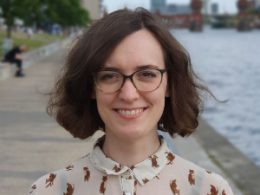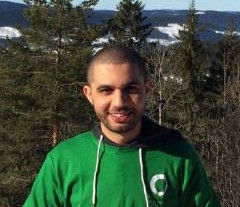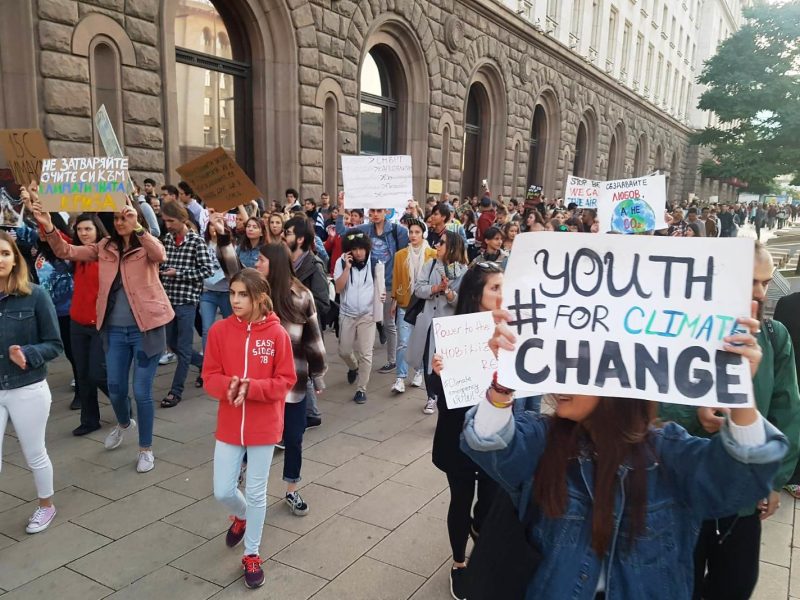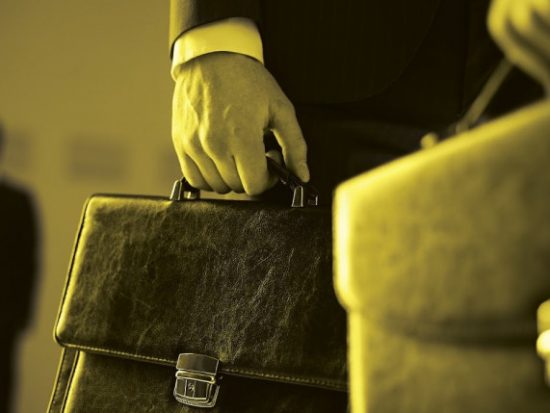This week, we’ve interviewed Celia Zoe Wicher and Josef Boraei, two members of our youth network – Young Friends of the Earth Europe – to find out more on what it means for Europe to act in solidarity with its youth.
First things first, can you tell us a bit about who you are and what you do? What brought you to Young Friends of the Earth?

Celia: I am a Berlin-based member of Young Friends of the Earth Europe’s (YFoEE) steering group. Before joining the steering group, I had been an activist with YFoEE for many years before. What I love about the network is its strong focus on justice issues and intersectionality and of course the opportunity it gives to meet so many lovely and committed people from all over Europe.

Josef (he/him): I am a climate activist from Cyprus working on several environmental and climate justice issues. My main interest is the connection between climate and social justice with an intersectional approach for a truly just system. I have been volunteering at YFoEE since 2016 and I am a member of the YFoEE steering group as representative of Young Friends of the Earth Cyprus focusing on intersectionality and fundraising for the network.
Since May 2020 I have also been working in the coordination team of YFoEE for the SYSTEM:RESET project, which aims at building platforms across Europe and bringing young people from under-represented communities to decision-making and build strong, collective visions for a socially just and ecologically sound future. The three main focus areas of SYSTEM:RESET project are Intersectionality, Green Deal for Europe and the Commons. Through this project I have been focusing on developing a Youth Proposal for Just Green Deal for Europe.
What is your vision for the future of Europe?
Celia: My vision for the future of Europe is a place that acts in solidarity both internally and towards the rest of the world.
Presently, far too much of our wealth and stability is actually based on the exclusion and exploitation of other parts of the world and marginalized groups within Europe
Many European states carry a great historical responsibility, both in regard to the climate crisis and other injustices like colonialism. In the future, I hope both social movements and governments work actively towards dismantling the social structures that these injustices have created.
Josef: The future of Europe for me relies on a new narrative, one that we must build to include the intersectional transformation that we desperately need in our society today. We have reached a point where multiples crises are intertwined and we urgently need to tackle them. I want to see truly just solutions implemented, solutions that aim to tackle any kind of oppression at an institutional level and to create a community of care, love and equity. To achieve that we need a holistic approach, otherwise we will be failing to address the interconnections of different injustices and therefore the future we want won’t be accommodating the rights and needs of everyone.
How does solidarity come into play within the youth climate movement?
Celia: Many young people realise that the climate crisis is actually not just about abstract figures and carbon emissions, but that it is actually an issue of both global and inter-generational justice. For young people in Europe, especially in the wealthiest countries, solidarity actually goes different ways. On the one hand, it is absolutely crucial to stand in solidarity with people and movements in the global south and to actively help dismantling the systems that actually also put young people from Europe in a very privileged position. On the other hand, many young people see their own future livelihoods at risk, thus they are claiming solidarity from older generations and those who are in power at this moment.
Josef: The climate justice movement has been driven by privileged white senior cis-hetero-males for so long, so much that other identities did not have the space to exist and be included. It is pretty clear that the climate crisis has to be tackled immediately and holistically. When we are fighting for climate justice, we are fighting for gender justice, for LBGTQI+ liberation, for migrants’ rights, for indigenous’ rights, for youth’s rights, for any form of justice where people, and especially youth, have been oppressed.
We are creating the spaces for oppressed identities to exist and participate and feel safe and included. That’s how the society is – diverse – and that’s how the climate justice movement should be.
Intersectional climate justice movement is needed, and YFoEE – notably though SYSTEM:RESET -puts intersectionality into practice by embracing and giving spaces to those who wouldn’t normally have the privilege to be there. It’s about understanding the power structures, stepping in/out when needed, creating allyships. Together we are stronger and the roots of every injustice is the same. One struggle – one fight. We are supporting each other’s struggles.

In her latest State of the Union address, European Commission President Ursula von der Leyen said Europe should follow the youth climate leadership. What actions would make her words meaningful?
Celia: The European Union (EU) is still one of the largest carbon emitters globally and the picture looks especially bad when you take into account per capita emissions and historical responsibilities. Yet, the latest version of the Climate Action Tracker is still rating the EU’s efforts as insufficient. The youth climate movement is calling out the glaring disparity between what would be the EU’s fair share in combating the climate crisis and what is actually on the table.
If the EU was serious about following youth climate leadership, they would raise their ambitions and provide more finance for countries in the Global South. Anything else would be hypocritical as they are actively putting the future of those they claim to champion at risk.
Josef: The EU has been promising a lot, but we haven’t seen much happening on the ground. Young people are strong, powerful, skillful, smart and they understand the radical intersectional transformation that needs to happen for us to live in a livable world, one that is fair for all and that protects the rights of young people, indigenous people, etc. Some of the actions that can be implemented to achieve a truly just transition are included in our youth proposal (to be published soon). This includes for instance:
- A shift of budget to support young people leadership, farmers, women, LGBTQIA+, and different other underrepresented communities.
- To enable them to participate in the multi-level decision making processes. Many young people are facing obstacles such as language barriers, economical barriers, digital access, or have been excluded due to their identities.
- To act now for climate and social justice, by stopping fossil fuels including gas, investing in workers transition, green jobs, access to education, etc.
Josef, you mentioned a few times the SYSTEM:RESET project. Can you tell us more about it?
Josef: SYSTEM:RESET – and its biggest deliverable, the Youth Proposal for a Green Deal for Europe – presents a narrative of the future we want and of the urgent intersectional transformation that is needed in our society. It presents young people’s visions for a socially just and ecologically sound future and highlights the momentum for system change.
The world is currently at a tipping point, where we need bold measures and coordinated collective actions to build an equitable, sustainable, and socially just future that we all want to live in. The time for bold collective actions to build a better world for everyone is NOW!
For two years, we collected visions from a large number of young people with different backgrounds and identities across Europe. We focused specifically on engaging underrepresented young people, as they are often not included in decision-making processes that affect them. We sought to highlight the voices of those who have been desperately silenced by the current system and produce a roadmap informed by our lived experiences and the communities we work with and represent. Stakeholders, especially policymakers responsible for implementing transformation and bold action, should use it as a guide to change the system and create a European Green Deal that is built upon a future that European youth want.
Speaking of the European Green Deal, what exactly would be a solidary European Green Deal in your view?
Josef: We demand to be included in decision-making processes and the development of institutional frameworks like the Green Deal to ensure a holistic approach to current and future challenges and sustainable and intersectional transformation for people and the planet.
If this has sparked interest in young readers, how can they get involved?
Celia: I think it is really important to acknowledge that there are countless different ways to get involved, depending on one’s interests, skills and resources! Everyone can play an important role in creating a more sustainable and just future and even if you are unsure what your specific role could look like at this point, you are so welcome to join and explore at your own pace. A good first step is always to check whether there is a local group in your area, for example by checking out the YFoEE website. At the European level, we are regularly running events like workshops or the summer camp and always love for new people to join us! If you have any questions, you can also get in touch with us directly at anytime: youngfoe@foeeurope.org
Josef: We want all the young people to know that they are absolutely amazing, inspiring, powerful and have every right to fight for their future. No matter who you are, you just need to be a person with a voice. We are here to support everyone in need, so get in touch with us!

Friends of the Earth Europe gratefully acknowledges financial assistance from the European Union. The contents of this article are the sole responsibility of Friends of the Earth Europe and cannot be regarded as reflecting the opinion of the European Union. The European Parliament cannot be held responsible for any use that may be made of the information contained.
Related Content
We think you’d also like:

European Green Deal
The European Green Deal has the potential to transform Europe’s economy to help fix the climate and ecological crises, and support workers in the transition. But it is in danger of being too little, too late.







